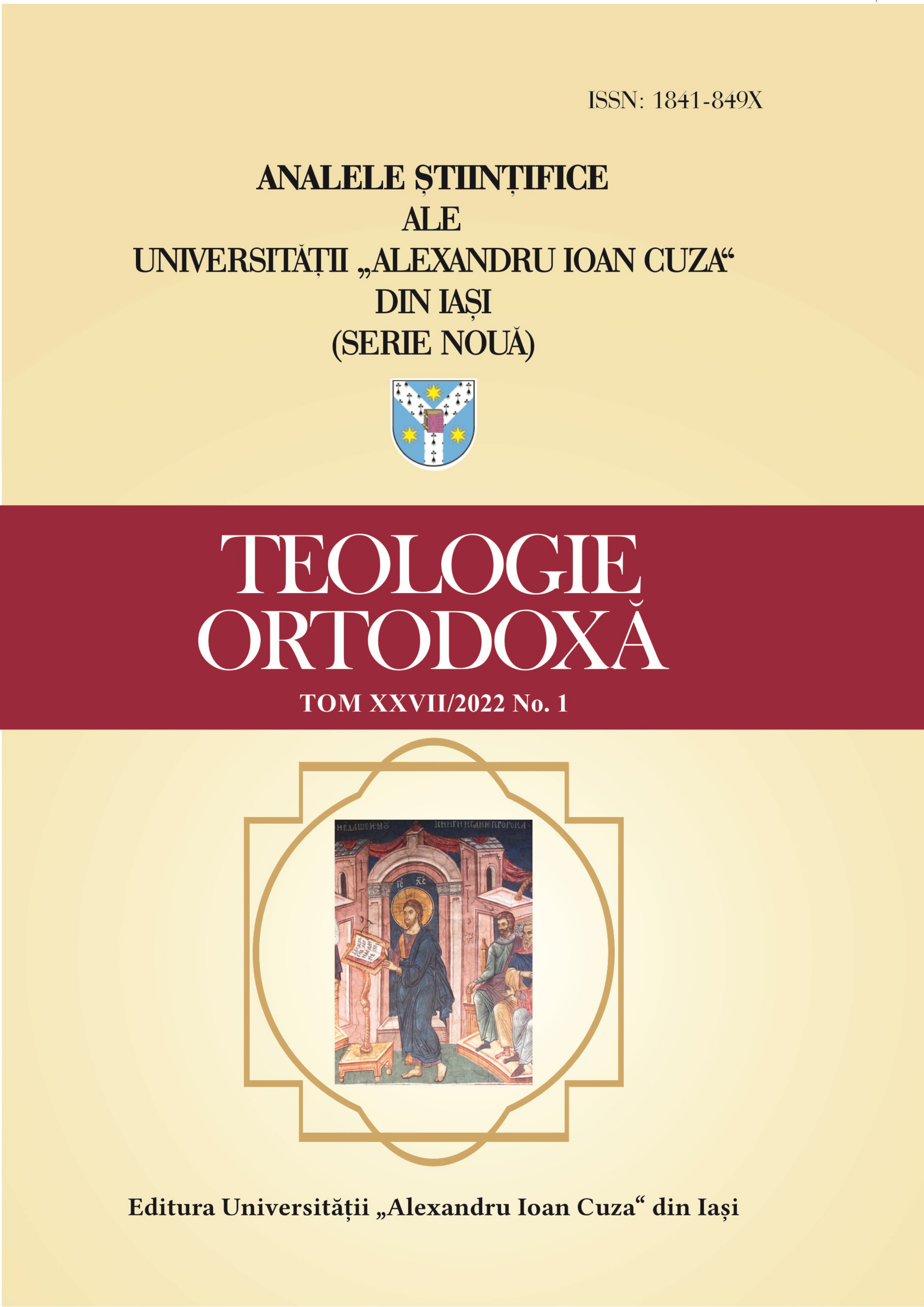Zodinsanga T - Role of Energeia in the Knowledge of God: A Philosophical Discourse
Toimoi ZODINSANGA*
Federated Faculty for Research in Religion and Culture, Kerala, India
Abstract:
There has been a debate over the valid source of knowledge. Rationalists claim that innate idea or reason provides knowledge while empiricists argue for senseexperience as the valid means of knowledge. Idealists (Plato, Georg Wilhelm Friedrich Hegel, George Berkeley, Johann Gottlieb Fichte, Immanuel Kant) affirm that reality of a thing lies in its essential nature. Plato, the idealist, declares that reality of a thing resides in its forms [1] (Panthanmackel 1999, 3-6; See also, Gracia 2003, 23). Immanuel Kant, another idealist philosopher holds different view that the essence or noumenon (“thing-in-itself”) of a thing cannot be known, what can be known is phenomenon (thing-itappears). The realist philosophers on the other hand observe that the ultimate reality of a thing lies at the world of physical object which is existed independently from mental processes. Aristotle, in response to the absolute claim of Plato in the knowledge of reality (forms/ideas/essence) asserts that the essential nature of a thing is expressed in its movement (Ferrarin 2001, 380). In the knowledge of God, many theologians have agreed that the energeia of God is the only and the best element to know God as the ousia of God is beyond comprehension. The Cappadocian Fathers (Basil of Caesarea, Gregory of Nyssa, Gregory of Nazianzus) are one group of theologians who advocate the revelation of God’s attributes through his activities. In this paper, attempt is made to discuss the role of energeia in the knowledge of God with special reference to the Cappadocian Fathers, which will be considered in the light of Neoplatonic philosophy. In this paper, attempt is made to discuss the role of energeia in the knowledge of God with special reference to the Cappadocian Fathers, which will be considered in the light of Neoplatonic philosophy.
Keywords:
energeia, knowledge, God, philosophy, Cappadocian Fathers
Bibliography:
- Aristotle. 1891. Metaphysics. Translated by John H. M’Mahon. London: George Bell and Sons.
- Basil. 1951. Letters Volume I. Translated by Sister Agnes Clare Way. New York: Fathers of the Church.
- Basil. 1955. Letters Volume II. Translated by Sister Agnes Clare Way. New York: Fathers of the Church.
- Bradshaw, David. 2004. Aristotle East and West: Metaphysics and Division of Christendom. New York: Cambridge University Press.
- Bradshaw, David. 2018. “The Concept of Divine Energies,” http://www.uky.edu/~dbradsh/ (17 Jan 2018).
- Cornford, F. M. 1960. Plato’s Theory of Knowledge. London: Routledge & Kegan Paul.
- Ferrarin, Alfredo. 2001. Hegel and Aristotle. United Kingdom: Cambridge University Press.
- Fox, Adam. 1957. Plato and the Christians. London: SCM Press.
- Garvie, A. E. 1931. “The Synthesis of History, Experience, and Reason in the ‘Knowledge of God’”. In: The Expository Times xliii/8, December: 107.
- George, K.M. 1994. The Silent Roots: Orthodox Perspectives on Christian Spirituality. Geneva: WCC Publications.
- Gracia, Jorge J. E. eds. 2003. The Classics of Western Philosophy: A Reader’s Guide. USA: Blackwell Publishing.
- Gregorios, Paulos Mar. 1980a. Cosmic Man: The Divine Presence. Kottayam: Sophia Publications.
- Gregorios, Paulos Mar. 1980b. The Human Presence: An Orthodox View of Nature. Madras: The Christian Literature Service.
- Gustafson, James Walter & Joseph B. Ongyango-Okello. 2007. The Quest for Truth: An Introduction to Philosophy. Eixth edition. Massachusetts: Proclaim Publications.
- Hirschberger, Johannes. 1976. A Short History of Western Philosophy. Translated by Jeremy Moiser. Guildford and London: Lutterworth Press.
- Horton, Michael. 2018. “The Doctrine of the Divine Energies,” https: //wspapers.wordpress.com/2010/02/25/the-patristic-doctrineof-the-divine-energies/ (17 Jan 2018).
- Jaeger, W. 1934. Aristotle: Fundamentals of the History of his Development. London: Oxford University Press.
- Kadai, Heino O. 1999. “Luther’s Theology of the Cross”. In: Concordia Theological Quarterly 63/3, July: 179, 186
- Kariatlis, Philip. 2012. “Dazzling Darkness: The Mystical or Theophanic Theology of St. Gregory of Nyssa”. In: Phronema 27/2: 103.
- Knowles, David. 1962. The Evolution of Medieval Thought. New York: Vintage Books.
- Küng, Hans. 1976. On Being a Christian. Translated by Edward Quinn. London: Sons & Company and Doubleday & Company.
- Mayer, Frederick. 1976. A History of Modern Philosophy. New Delhi: Eurasia.
- McGrath, Alister E. 1990. Luther’s Theology of the Cross. UK 7 USA: Blackwell Publishers
- Nazianzen. 1955. “Theological Oration”. In: Nicene and Post-Nicene Fathers, Vol 7. Translated and edited by Philip Schaff & Henry Wace. Grand Rapid, Michigan: WM. B. Eerdmans Publishing
- Nazianzus. 1955a. “Oration 23.3”. In: Nicene and Post-Nicene Fathers, Vol 7. Translated and edited by Philip Schaff & Henry Wace. Grand Rapid, Michigan: WM. B. Eerdmans Publishing.
- - Nazianzus. 1955b. “Theological Oration XXVIII”. In: Nicene and PostNicene Fathers, Vol 7. Translated and edited by Philip Schaff & Henry Wace. Grand Rapid, Michigan: WM. B. Eerdmans Publishing
- Nyssa. n.d. “Against Eunomius Book 1”. In: Nicene and Post-Nicene Fathers, Vol 5. Edited by Philip Schaff & Henry Wace. Grand Rapid, Michigan: WM. B. Eerdmans Publishing.
- Panthanmackel. 1999. George Coming and Going, Vol 1. Bangalore: Asian Trading Corporation
- Patrick, G. T. W. 1935. Introduction to Philosophy. Revised edition. USA: Houghton Mifflin Company.
- Philip, Bijesh. 2015. St. Basil the Great and the Globalized India. Delhi: ISPCK.
- Souza, Denis D’. 2010. “Neoplatonism”. In: ACPI Encyclopedia Philosophy, Vol II. Edited by Johnson J. Puthenpurackal. Bangalore: Asian Trading Corporation.
- Wolf, William J. 1955. Man’s Knowledge of God. New York: Doubleday & Company.

